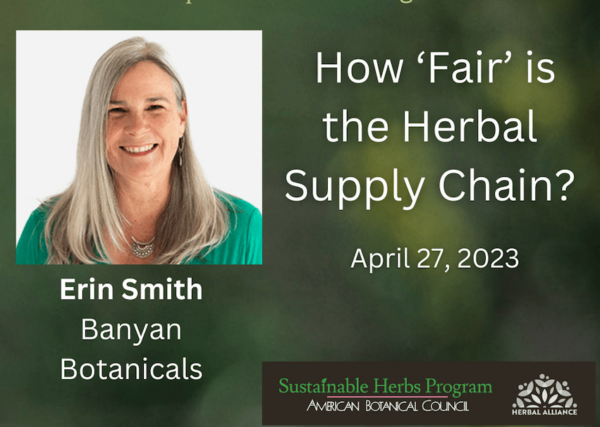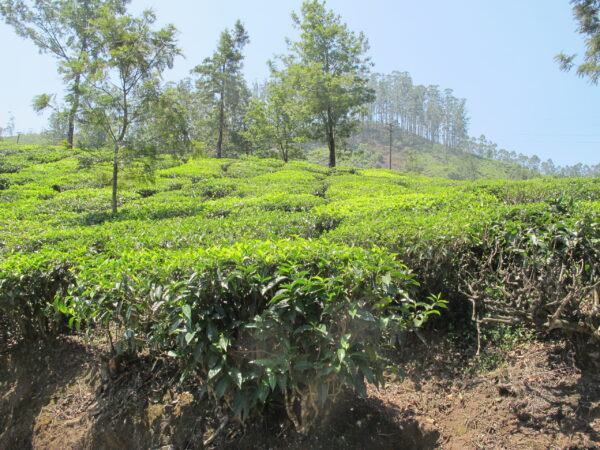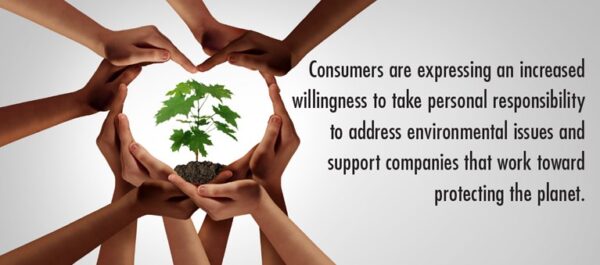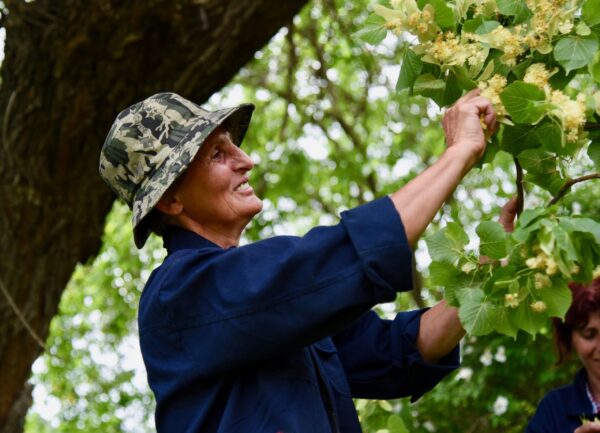Unlocking Innovation Through Connection
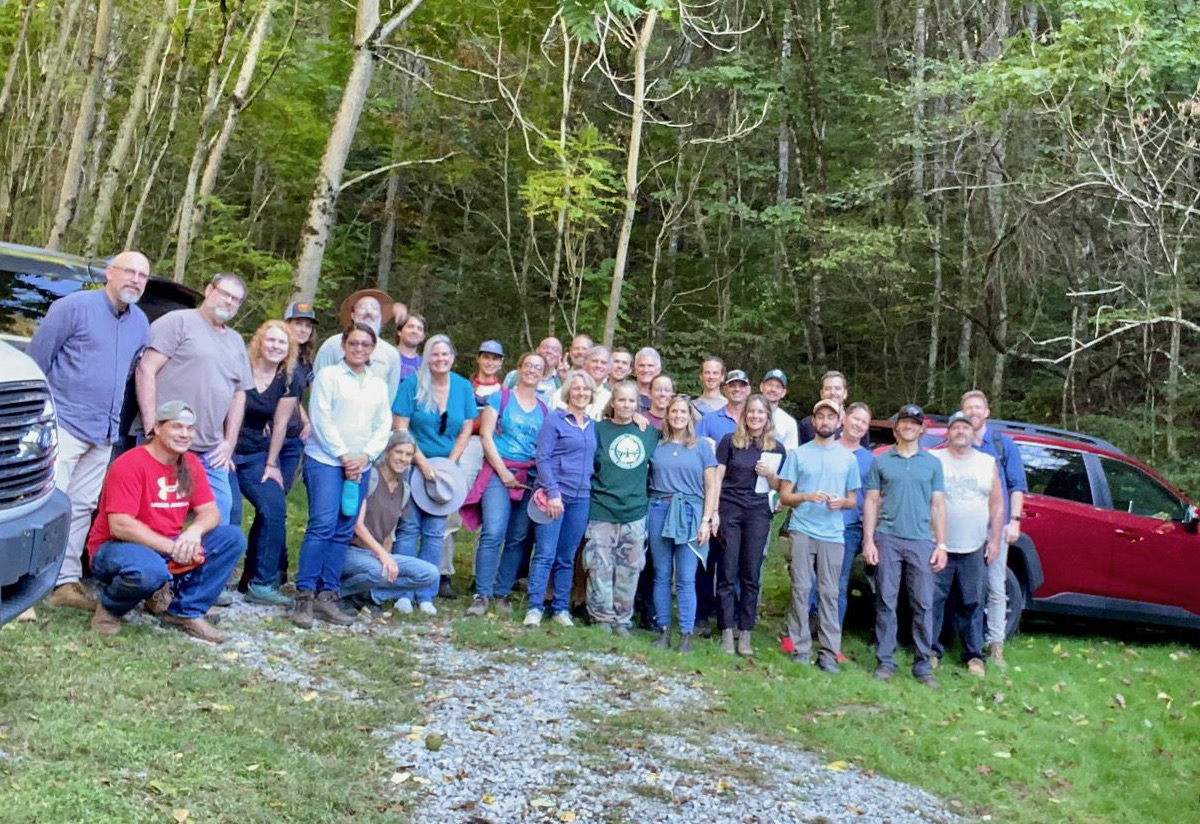
Diving Deep
How can deep listening and long-term relationship building lead to genuine innovation in the herbal industry?
Wild Stewards Alliance and How SHI Helped Seed a New Model for Ethical Wild Harvesting
By Ann Armbrecht, Founder, Sustainable Herbs Initiative
In a complex and often fragmented global herbal industry, transformational change rarely comes from a single company or initiative. It emerges from networks, patiently built, deliberately nurtured, and rooted in shared vision.
At the Sustainable Herbs Initiative (SHI), we believe that deep, systemic progress in herbal sourcing arises not from scaling fast, but from convening wisely. Our approach, centered on dialogue, connection, and co-creation, has helped unlock innovations that traditional market mechanisms often miss.
One recent milestone illustrates this in practice, a Wild Steward’s Alliance training with wild harvesters from the Pacific Northwest, hosted by Mountain Rose Herbs. The training marked more than just a skills workshop, it represented a convergence of relationships and ideas that have been quietly growing for over a decade. This convergence blends deep listening to ecosystem stewards, commercial insight, and corporate engagement to create meaningful progress in a critical sector of the herbal industry that is often maligned. It also serves as an example of how SHI’s presencing pedagogy (inspired by the work of Otto Scharmer) can be employed to build more integrated and future proof solutions to modern challenges.
Laying the Groundwork, A Long Arc of Relationship
The story begins in 2010, when I first met Robin Suggs, a skilled wild harvester practicing forest farming of black cohosh in eastern Tennessee. I had just begun my journey following herbs to the source and had decided to begin with black cohosh. That thread led me to Robin who lived off the side of a narrow mountain road in eastern Tennessee. I climbed on the back of his ATV to go into the forest to see his black cohosh. To be honest, it didn’t look like much. It was all so small scale. Robin showed me his drying room in the basement of his home. The room was clean, the dried roots impeccable. But they too were so small scale. I didn’t see how anything that happened in this forest or in this room could bring about the changes needed in the industry.
Wild harvesters are a critical and often overlooked actor in the herbal industry; though frequently operating semi-formally and on the fringes of society, they can act as land stewards in remote and biodiverse regions. Too often, however, price pressures and market demand force them into harvesting more than ecosystems and plant populations can sustain to try to make ends meet.
Robin was committed to ethical harvesting and selling high-quality roots at a premium. But despite his deep stewardship and integrity, the market wasn’t ready to pay more. Eventually, I heard, his business closed, a sign of the gap between ecological responsibility and market demand.
My experience with Robin offered more questions than answers. I expanded my search beyond black cohosh and traveled to wild harvesting communities in Hungary, Poland, and eventually India, Nepal and beyond. The scale was different, but the challenges were similar. What would it take to create real, sustained value for wild harvesters, enough value to make this livelihood one worth doing and one worth passing on to their children?
From Vision to Structure, The Point of Harvest Program
I’m from West Virginia. Though the Sustainable Herbs Initiative has a global focus, the medicinal plants of Appalachia have my heart and so I continued reaching out to those working in the region. I met others asking similar questions. Katie Commender, working to strengthen community-based forest farming in Appalachia. John Munsell, leading regional coordination efforts through Virginia Tech. Katie and I collaborated on awareness campaigns like Forest Botanicals Week and storytelling initiatives like SHI’s films on wild harvesting and forest farming. These efforts sought to elevate not only the plants, but the people and places they come from.
As this network matured, John began developing what became the Point of Harvest (PoH) program, a training initiative focused on education, traceability, and stewardship for wild harvesters. Robin Suggs was eventually hired by Appalachian Sustainable Development and the Appalachian Herb Hub to handle procurement of forest farming material for ASD. He began working with John on the PoH trainings. Robin’s credibility and firsthand experience helped attract more harvesters, increasing engagement and participation.

SHI played a unique role throughout, not as a program implementer, but as a connector and bridge-builder. Our role was to bring companies into the conversation, to surface the realities of procurement, pricing, and quality from the buyer’s perspective, and to bridge those with the goals of rural communities and sustainability advocates.
Connecting Global Perspectives and Regional Realities
In 2023, SHI hosted an in-person Learning Journey in Appalachia. Funding from Virginia Tech and a planning grant from the Appalachian Regional Commission through their Appalachian Regional Initiative for Stronger Economies (ARISE) program allowed us to invite individuals working for primary processing companies (companies that purchase and process wild harvested and cultivated medicinal plants) in Peru, South Africa, and Nicaragua. The event created a rare opportunity for wild harvesters and company leaders to meet face to face.
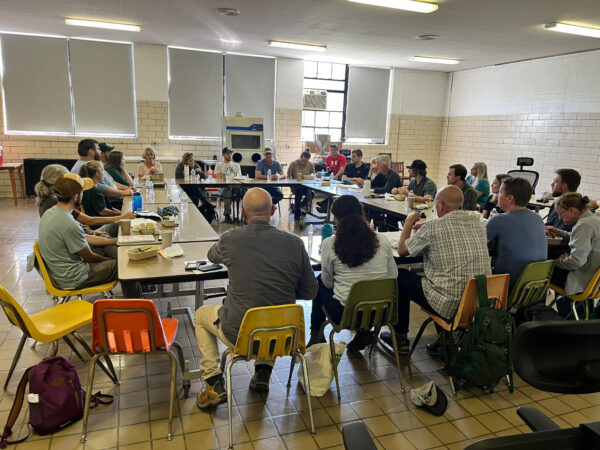
One powerful moment came when Finn Rautenbach, working with wild harvesting communities in South Africa, and Paula Pebani, working in Peru, shared insights with David Wallace, a Virginia-based wild harvester participating in the PoH program. These conversations reinforced a key idea that, while contexts differ, the core challenges and aspirations of wild harvesters are often universal. And real progress comes when those voices are centered and connected to market actors in meaningful ways.
Understanding the Business Realities
Following the Learning Journey, as part of SHI’s role in the ARISE program, I formed a company Advisory Group to explore what it would actually take for buyers to support higher prices for ethically harvested Appalachian herbs. The group included sourcing and procurement staff and social impact staff from multiple companies. Our discussions focused on identifying constraints and exploring potential solutions.
What emerged was a candid and nuanced view of what stands in the way:
- Pricing pressure remains the central challenge. Several companies noted that 3-4x price increases, while justifiable on ethical grounds, were not viable in most commercial formulations, especially when the value-added story couldn’t be communicated on the label.
- Staff turnover disrupts long-term relationship building in sourcing departments.
- Certifications confusion As interest in regenerative and organic certifications grows, it’s increasingly difficult for brands to prioritize lesser-known programs like the Wild Steward’s Alliance, despite their connection to stewardship of wild plants.
- Middle actors(aggregators, brokers, etc.) play a critical role in compliance and logistics. Reducing their role to drive more income to harvesters is desirable, but not always feasible given the complexity of managing 30, 100 ingredients from around the world
Through four Advisory Group meetings, each featuring guest speakers and regional experts, we laid the foundation for better-informed purchasing decisions and more aligned cross-sector engagement. One key insight was the need to reframe ethical sourcing not just as “doing the right thing,” but as future-proofing supply chains in the face of ecological risk and consumer scrutiny.
From Listening to Innovation
In parallel with the conversations around the commercial realities, the Point of Harvest program expanded their trainings and evolved into the Wild Stewards Alliance (WSA), a member managed industry group of wild harvesters that seeks to represent the needs and opportunities of wild stewardship to the herbal industry, working on everything from advocacy to pricing while continuing to offer a PoH certification for stewardship at the source of harvesting.
Overall SHI’s work focuses on making connections between stakeholders who are otherwise not connected and creating opportunities for shared learning, helping industry actors better understand the challenges and perspectives of those in different positions. This has included organizing a panel with speakers from leading herb companies on what they look for in sourcing herbs and the quality requirements for purchasing premium priced raw material. And with ARISE funds, SHI brought Robin Suggs to join the second SHI Learning Journey, having the opportunity to meet with wild harvesters from the Pacific Northwest. This gathered served as the foundation for Mountain Rose’s inviting Robin back to Oregon the following year to, with John Munsell, host a WSA training for wild harvesters in the Pacific NorthWest.
Much of what SHI has helped catalyze has come not from strategy decks or bold headlines, but from deep listening, slow relationship building, and sustained presence in the spaces where conversations often break down. From these conditions, real innovation has emerged.
- The Wild Steward’s Alliance training hosted by Mountain Rose emerged from relationships seeded at the SHI Learning Journeys. This is a great example of corporate engagement with grassroots advocacy.
- The inclusion of Boring Roots as a supplier in SHI’s Scope 3 Working Group came out of Advisory Group dialogue.
- The launch of our new Wild Harvester Stories series aims to elevate voices and realities from across the globe, giving industry leaders more grounded insights into the people behind their raw materials.
Where We Go from Here
Looking ahead, SHI is supporting the formation of a Regional Council of companies committed to the long-term health and resilience of Appalachian botanical supply. This group will explore shared metrics, pooled investment models, and new ways to bridge market dynamics with community needs.
If your company is committed to ethical sourcing, regenerative supply, and future-ready business models, we invite you to be part of this work. The Sustainable Herbs Initiative isn’t just a source of educational content, it’s an innovation engine rooted in trust, connection, and the long game of transformation.
Explore the stories, join the conversation, or reach out to learn more, www.sustainableherbsinitiative.org
Blog Posts Related to Unlocking Innovation Through Connection
How Fair is the Herbal Supply Chain?
Fair certifications are slowly gaining more momentum in the herb...
Advocacy and the Climate Crisis
Jane Franch of Numi Tea talks about Numi's climate plan...
Consumers Prioritize Sustainability
Key takeaways from HerbalGram article, “Climate-Conscious Consumers Prioritize Sustainable Herbal...
What Does Sustainability Mean?
In this video and interview, Andrea Rommeler talks about what...

